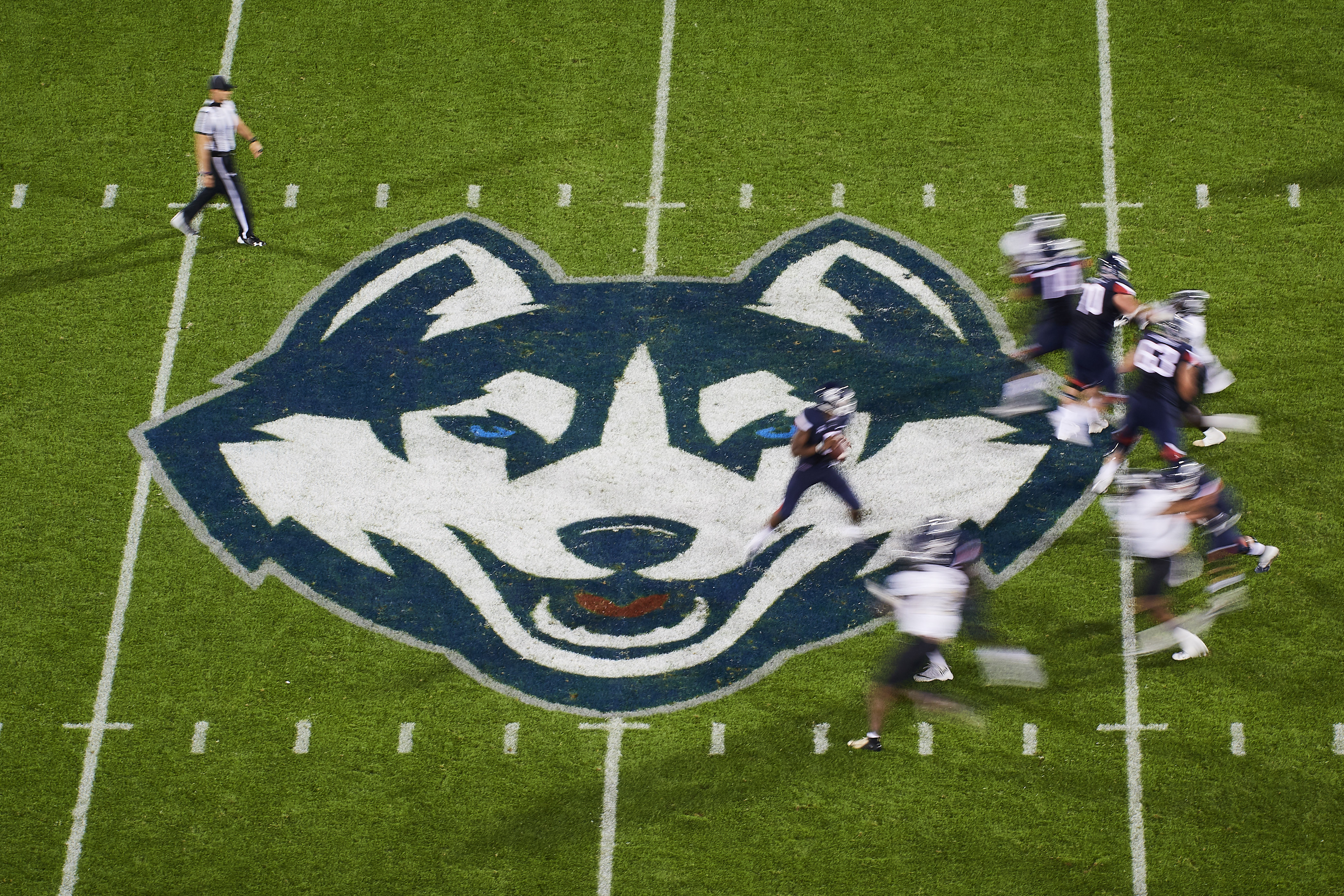There are many sports analytics workshops held around the world each year, but what makes UConn’s unique is that undergraduate students, and even those on the high school level, are invited and encouraged to be part of it.
The second annual UConn Sports Analytics Symposium was held virtually on Saturday, Oct. 10, and attracted over 300 participants, with some from as far away as China and Brazil.
“The idea of this conference is to specifically target students who are just starting to learn about sports analytics, or may have no idea about it, but are interested,” says Gregory Matthews, an associate professor of statistics at Loyola University Chicago, who earned his doctorate in statistics from UConn in 2011.
He was part of the steering committee for the event along with Jun Yan, a UConn professor of statistics, and Brian MacDonald, the director of sports analytics at ESPN.
Yan planned the first conference a year ago at the urging of one of his undergraduate students.
“There are many students that are interested in this and wanted UConn to host its own symposium,” says Yan. “I reached out to Greg and we got the speakers and did the first one.”
“The idea of inspiring some kid in high school or college is sort of what this conference is about,” says Matthews. “They can see other people doing this as careers. There are a lot of students who say they like sports and like math, but they don’t really know how to connect the two.
“I also think getting people into statistics through sports is a way to trick them into other field. I got into statistics through sports, but then I learned all this other cool stuff you can do with it. I do work that is completely unrelated to sports at my job along with sports. Statistics is such an important field today.”
MacDonald and the ESPN data analytic team of eight people led one of the four keynote speakers sessions at the symposium, and gave a deep look at the work his team does at ESPN on NBA analytics. These rest of the ESPN team was sports analytics developers Henry Gargiulo and Neil Johnson; associate director of sports analytics Matt Morris; associate sports analytics developer Lauren (Poe) Parolin; associate director, stats and info group Michael Portos; senior writer Andre Snellings; and associate sports analytics specialist Mitchell Wesson.

“We create these metrics to support the people that are content researchers for show, the people who come up with the interesting facts that are passed on to on-air talent,” says MacDonald. “That can be for live sporting events or shows, and we also produce content for written articles that go on espn.com. Many teams are using these kinds of advanced metrics, so if we want to talk intelligently on the decisions they are making, then we at ESPN as a media organization want to be able to talk about it from that perspective as well.”
The other keynote speakers were Thompson Bliss, a data scientist at the NFL, who talked about the statistical nuances of travel, rest and playing at home; Ronald Yurko, a doctoral student at Carnegie Mellon, who discussed models of game outcomes in football with tracking data; and Stephanie Kovalchik, a senior data scientist at Zelus Analytics, who discussed using mixture models for estimating latent quantities in sports.
There were other presentations, workshops and welcoming remarks, including a presentation by UConn assistant strength and conditioning coach Anthony Grasso, who works with the Husky football team.
A complete archives of the presentations is available HERE.
Sports analytics are used by executives, general managers, and coaches of sports organizations at the highest level, and also by the everyday fan.
“Why are teams interested in this? The answer to that is because it works,” says Matthews. “An example you see is the very visible shift in baseball. Everyone can see that. When teams started to do that, the fans said ‘Wait a minute, what is going on? This is not how baseball is played.’ Fans started to see that it worked and it is things like this that get them more interested in analytics.”
And where does analytics fit it for the old-school coaches and fans who still believe in making decisions based on feel?
“It’s supplemental rather than replacing,” says Matthews. “People still do in-person scouting. Scouts used to say things like ‘I like this kid because of upside.’ What did that mean? You have this scout with his experience, but you now also have analytics, and together those are just better than one or the other.”
The organizers are all looking forward to next year’s symposium, hoping it can be offered in a hybrid format with both in-person and virtual participants.
“You are never going to be able to replace being in person and having a conversation,” says Matthews. “You never know where a conversation is going to go.”



